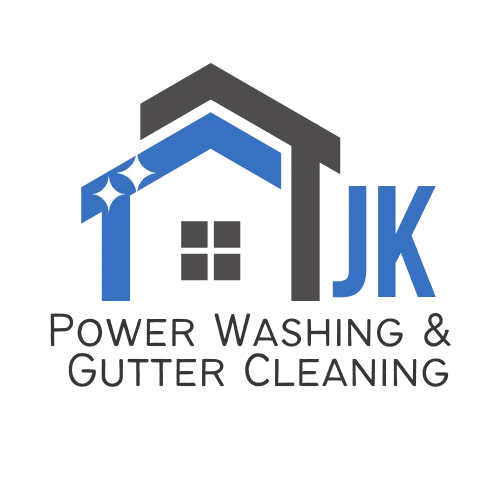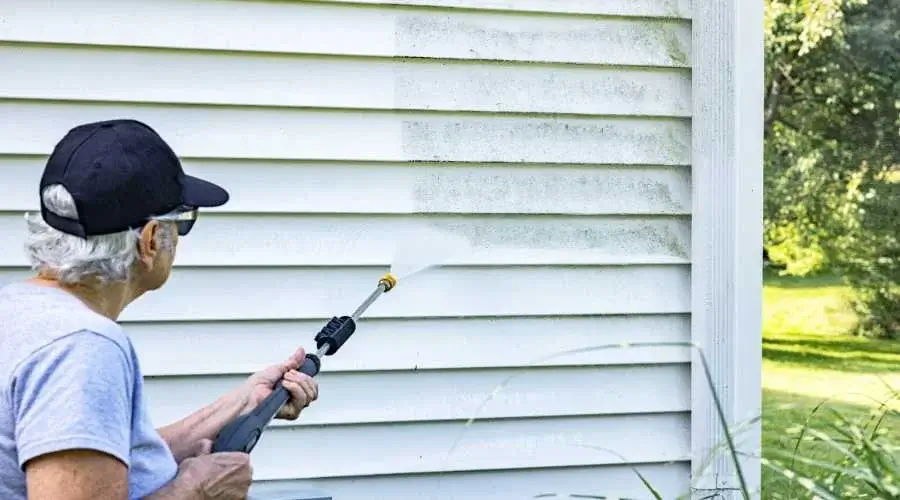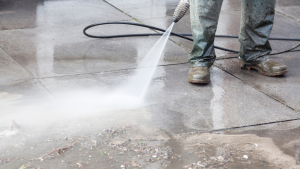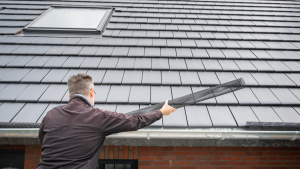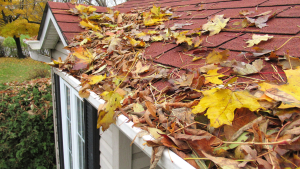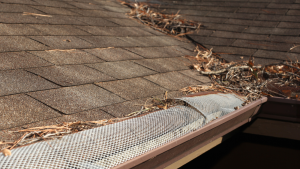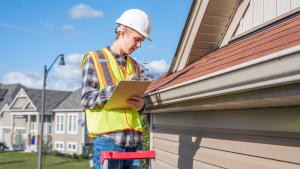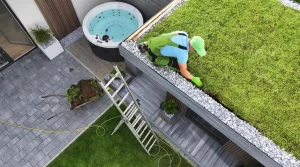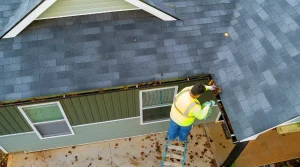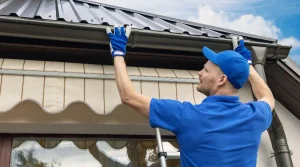Power washing, or pressure washing, is a powerful cleaning method that removes dirt, grime, and mold from outdoor surfaces. With proper techniques and precautions, you can achieve remarkable results and extend the lifespan of your property’s exterior.
Key Takeaway
- Power washing is an effective way to clean and rejuvenate outdoor surfaces, but it requires the right equipment, techniques, and safety precautions.
- Know the difference between power washing and pressure washing, choose suitable detergents, and always prioritize safety to avoid damaging your property.
Power Washing vs. Pressure Washing
While the terms power washing and pressure washing are often used interchangeably, understanding their differences can help you choose the right method for your cleaning needs:
- Power Washing: Involves heated water under high pressure, making it ideal for tough stains, mold, and mildew on surfaces like concrete, brick, and vinyl siding.
- Pressure Washing: Utilizes cold water under high pressure, which is suitable for removing less stubborn dirt and grime from wood decks, patios, and fences.
Choosing the Right Method
Selecting the appropriate method depends on the surface you’re cleaning and the type of dirt or grime present. Here are some general guidelines:
- Use Power Washing for:
- Removing mold and mildew.
- Cleaning grease or oil stains on driveways and garage floors.
- Restoring heavily stained concrete or brick surfaces.
- Use Pressure Washing for:
- Gentle cleaning of wooden decks and fences.
- Refreshing patios and outdoor furniture.
- Washing delicate surfaces that may not withstand high heat.
Preparation Tips Before Power Washing
Before you start power washing, preparation is key to ensure effective and safe cleaning.
- Understand the Difference Between Residential and Professional Detergents
- Always use cleaning agents specifically designed for the surface you’re treating.
- Avoid using harsh chemicals that could damage your property or harm the environment.
- Know What You Should and Shouldn’t Wash
- Suitable surfaces include concrete, brick, vinyl siding, and some types of wood.
- Avoid washing laminar sandstone, painted objects, and areas with loose or damaged materials.
- Inspect and Protect Nearby Areas
- Cover nearby plants, windows, and light fixtures to protect them from overspray.
- Move outdoor furniture and other items out of the cleaning area.
- Choose the Right Equipment
- If renting a pressure washer, select one suitable for residential use.
- Ensure you have the correct nozzles and attachments for your project.
- Test the Pressure on a Small Area
- Always test in an inconspicuous spot to ensure the pressure setting won’t damage the surface.
Effective Power Washing Techniques
- Start at the Bottom and Work Your Way Up
- Cleaning from the bottom prevents dirty water from streaking onto already-cleaned areas.
- Use Detergents for Tough Stains
- Apply a cleaning solution, let it sit for a few minutes, and then rinse thoroughly.
- Maintain a Safe Distance
- Keep the nozzle at least 12 inches from the surface to avoid damage.
- Work in Sections
- Divide large areas into smaller sections to ensure even cleaning and avoid missed spots.
Safety First
Power washing involves high-pressure water that can cause injuries or property damage if not handled correctly. Follow these safety guidelines:
- Wear Protective Gear: Use goggles, gloves, and closed-toe shoes to protect yourself.
- Never Point the Nozzle at People or Pets: The high-pressure stream can cause serious injuries.
- Avoid Electrical Hazards: Be cautious around electrical outlets and fixtures.
- Don’t Use Ladders: The force of the water can cause instability. Use extension wands instead.
When to Hire a Professional
While DIY power washing can save money, some situations may require professional expertise:
- Large Areas: Professionals have the equipment and experience to clean large spaces efficiently.
- Delicate Surfaces: Experts know how to adjust pressure and choose the right detergents for sensitive materials.
- Stubborn Stains: Persistent grease, oil, or mold may need specialized treatment.
FAQs About Power Washing
1. Can I use a regular garden hose instead of a pressure washer?
While a garden hose can remove loose dirt, it lacks the pressure needed to clean tough stains effectively.
2. How often should I power wash my property?
Most outdoor surfaces should be power washed once a year. However, high-traffic areas or regions with heavy rainfall may require more frequent cleaning.
3. What pressure setting should I use?
The ideal pressure depends on the surface:
- Concrete: 2,500-3,000 PSI.
- Wood: 500-1,200 PSI.
- Vinyl siding: 1,300-1,600 PSI.
4. Is power washing environmentally friendly?
Using eco-friendly detergents and minimizing water waste can make power washing a more sustainable option.
5. Can power washing remove oil stains?
Yes, but it often requires heated water, a degreaser, and multiple passes to completely eliminate the stain.
6. Should I seal surfaces after power washing?
Sealing surfaces like concrete or wood after power washing helps protect them from future damage and stains.
7. Can power washing damage my property?
Improper use of pressure settings or techniques can cause damage. Always follow manufacturer guidelines and test on a small area first.
8. Is it better to rent or buy a pressure washer?
Renting is cost-effective for occasional use, while purchasing makes sense for regular cleaning projects.
Conclusion
Power washing is a versatile and efficient method for maintaining your property’s curb appeal and cleanliness. By choosing the right equipment, following proper techniques, and adhering to safety guidelines, you can achieve professional-level results. For complex or large-scale projects, consider hiring a professional to ensure the best outcome.
Our Bergen County Gutter Cleaning & Power Washing services are available to clients in Bergen County, New Jersey, and the surrounding areas. We are dedicated to delivering top-quality service and have proudly served our customers for years. Don’t hesitate to reach out to us for assistance. Our expert technicians are ready to respond promptly and assess your needs.
